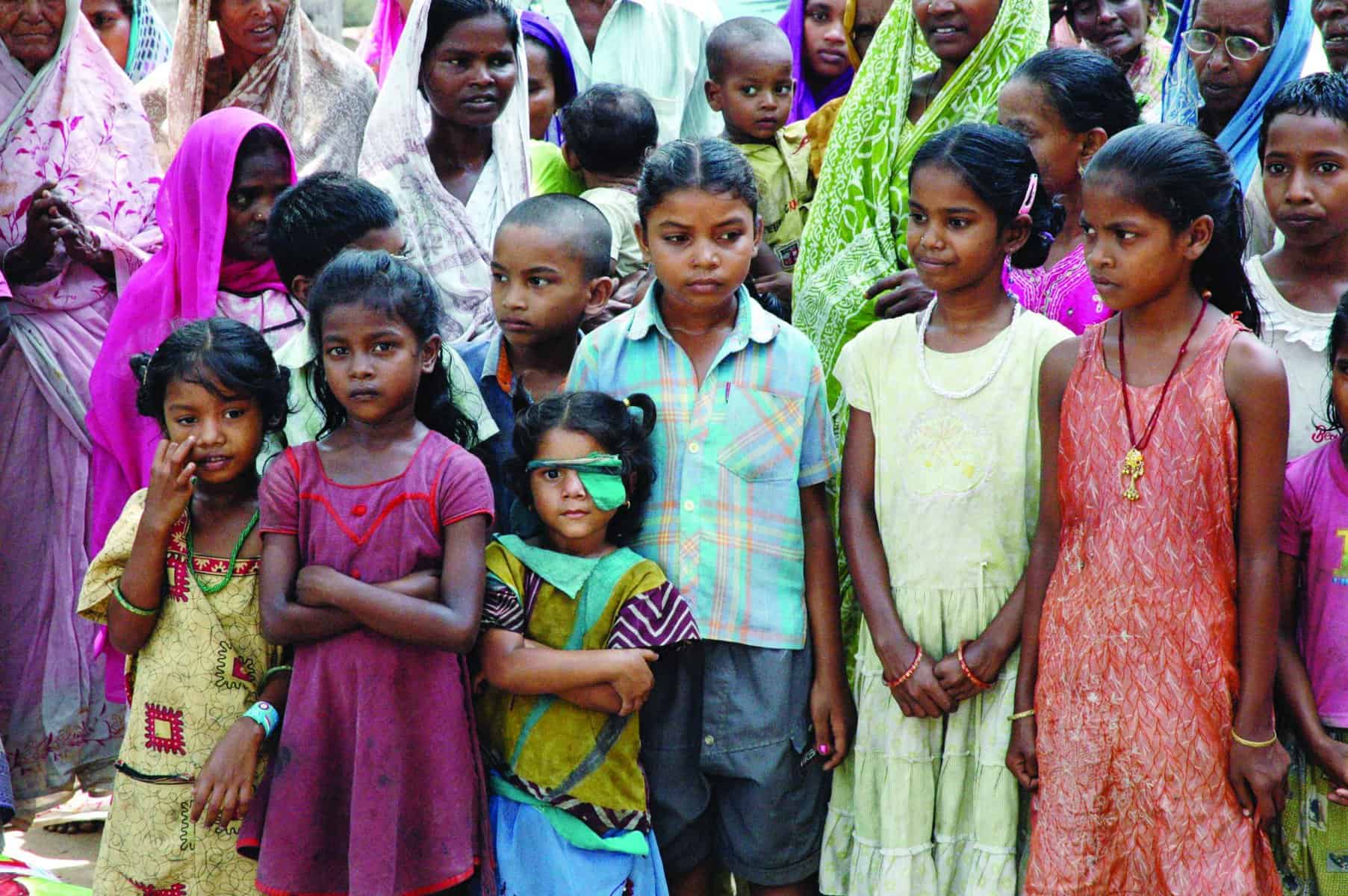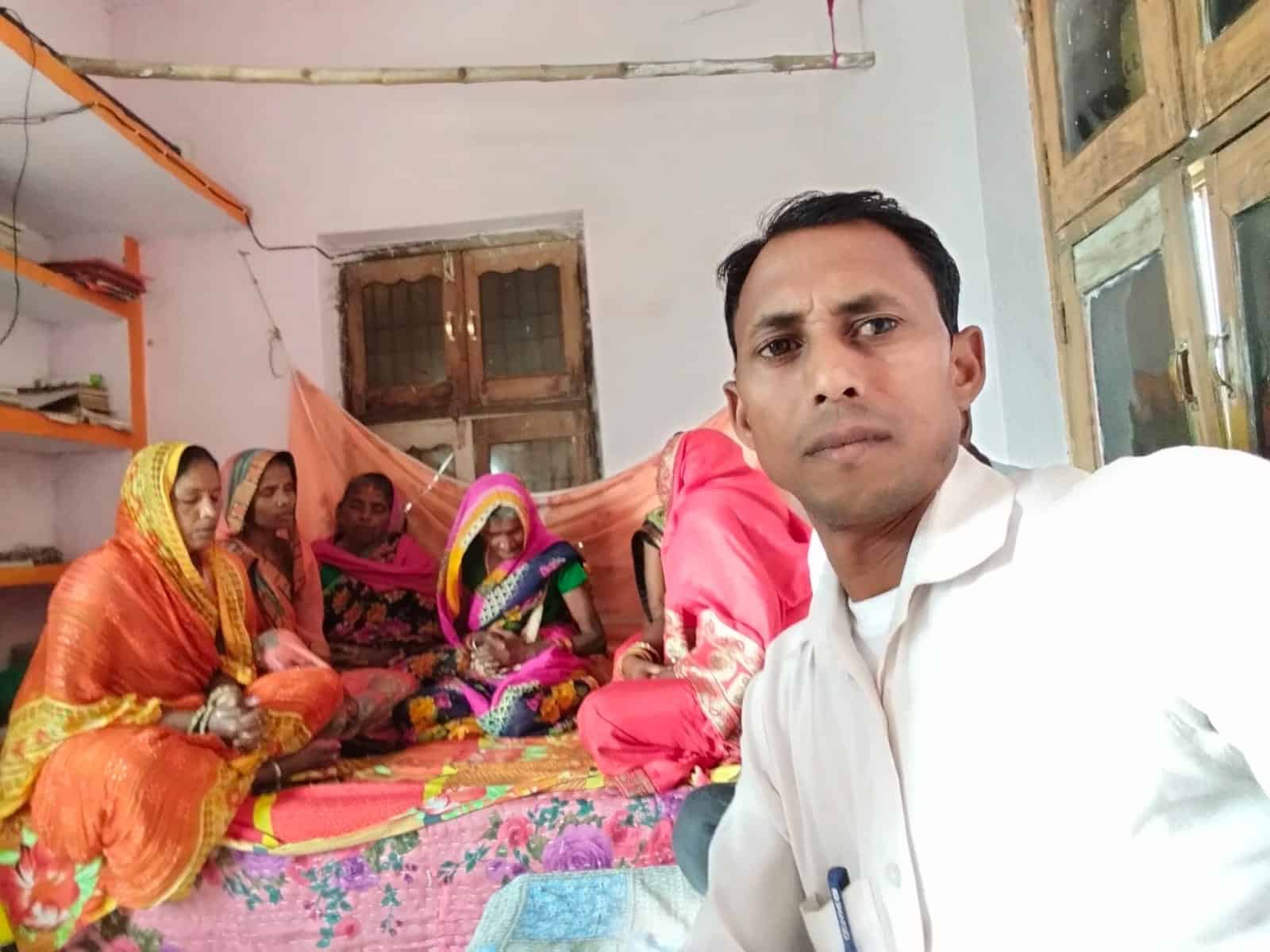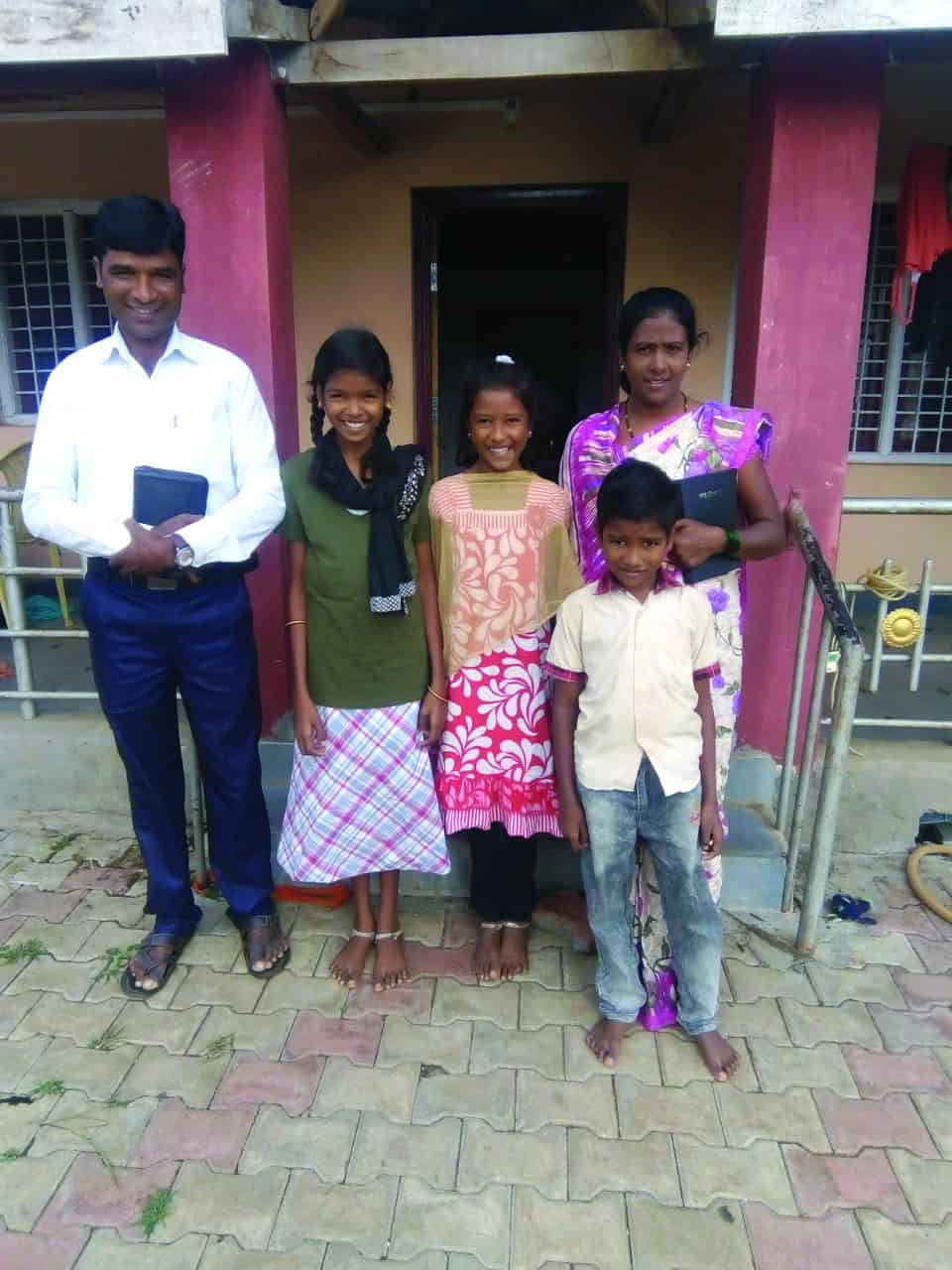We work with a young man, whose name I will conceal because he has asked me to. He has shared a story with us that I want to share with you, outcast and abandoned.
“If I speak about this publicly or in any other place like social media, I’ll get into trouble,” he said, “but the fact is that these kids need help, but they (the authorities) try to sweep them under the rug.”
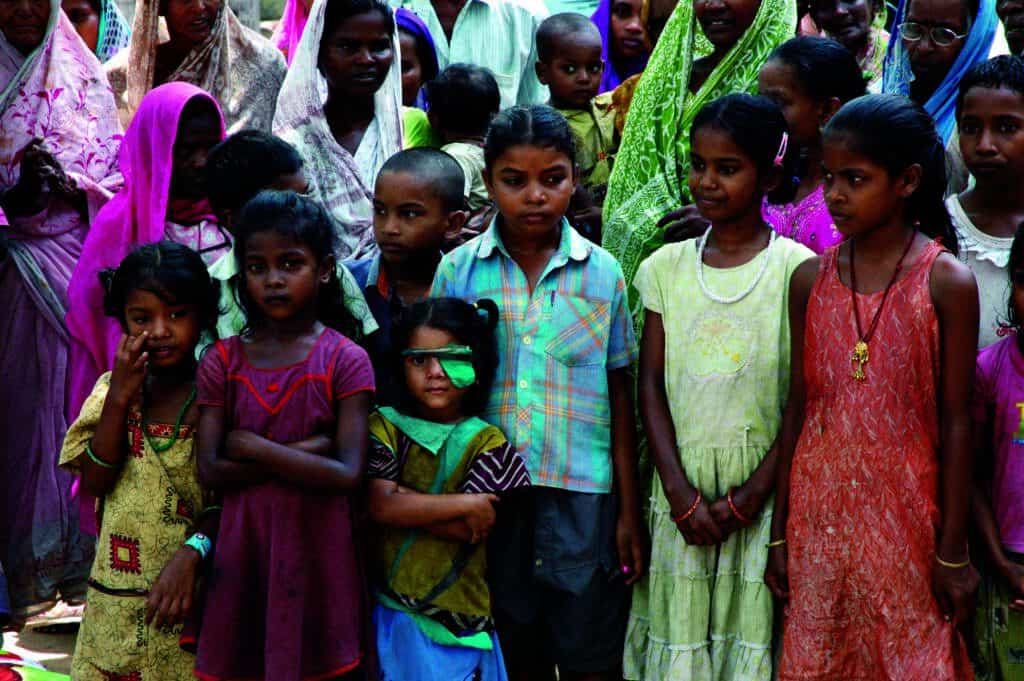
Background
This young man is a State Director of Touch A Life® in India and is responsible for caring for the children of lepers in one of our local Touch A Life centers, which a local church pastor runs. (There are six more such centers for leper children in his area, but we do not have funding to care for those children.) And while none of the children are lepers, their parents are, so they also carry the infamous distinction of being lepers. Leprosy usually does not reveal itself until the child reaches the age of fifteen. A young couple in Texas provides for these children from their business profits.
In the neighboring state of Karnataka, we have several feeding centers for leper children in and around the megacity of Bangalore. Unfortunately, their feeding program is a Sunday-only meal, which is all we have funding for. It is always delightful to visit these kids and see the traces of smiles on the faces of their leper parents, who often have paralyzed faces due to the nerve damage caused by leprosy. Their attempts to smile, though not always visible on their faces, can be seen in their sparkling eyes. But the delight in the eyes and laughter of these several hundred children never ceases to thrill our hearts when we are blessed to visit them.
Lepers’ children may not get leprosy. Still, they, too, are stigmatized by being the child of a leper. Hinduism teaches that these parents were so evil in past lives they must now live with leprosy to pay for their sins. So the lepers believe they deserve this fate, and their children believe accordingly. Imagine your life if you grew up believing such corruption about your parents.
Unfortunately, the children also believe they must have past sins to atone for, so they were not born to the educated or the wealthy but to lepers. As you can imagine, these lepers are thrilled to learn that Christ paid our sin debt to remove all the guilt of sin from us. They rejoice, knowing that though there was no past life, there is certainly a future life in paradise with their Lord. So they endure here with the promise of a resurrected body there.
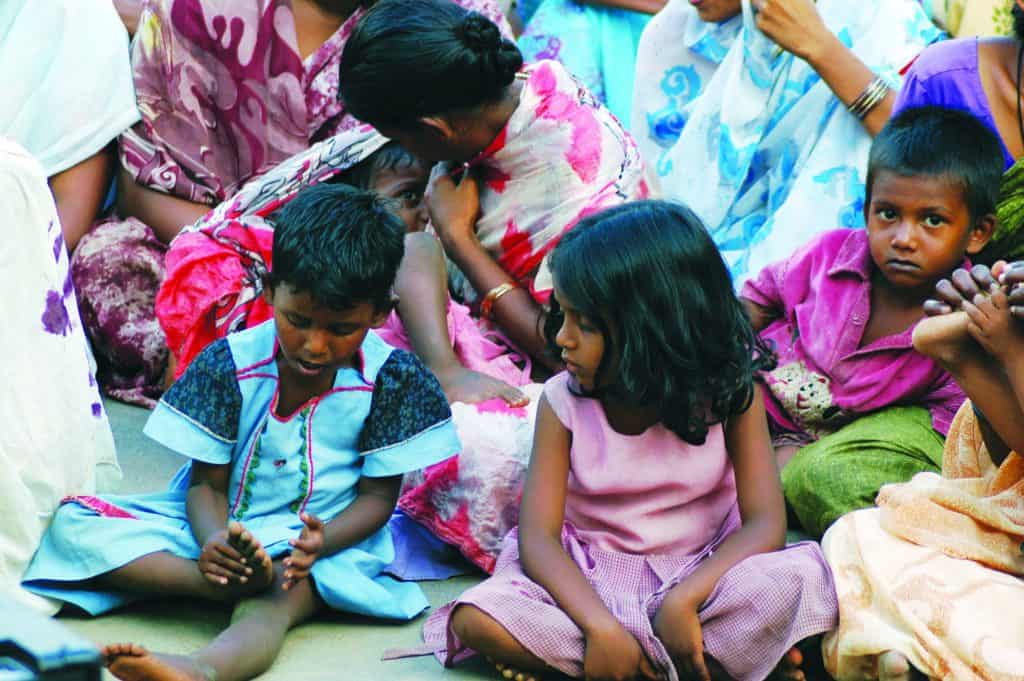
For thousands of years, castes have dominated the psyche of Indian life. You are born into a specific caste and cannot move outside it. Well, there are two exceptions. The first, as you may imagine, is leprosy. It condemns you to a life apart from society. A life of misery, often being forgotten by your family, and a life of begging for your daily food. Even if you are somehow “healed,” you will never be accepted back into your family, caste, or society.
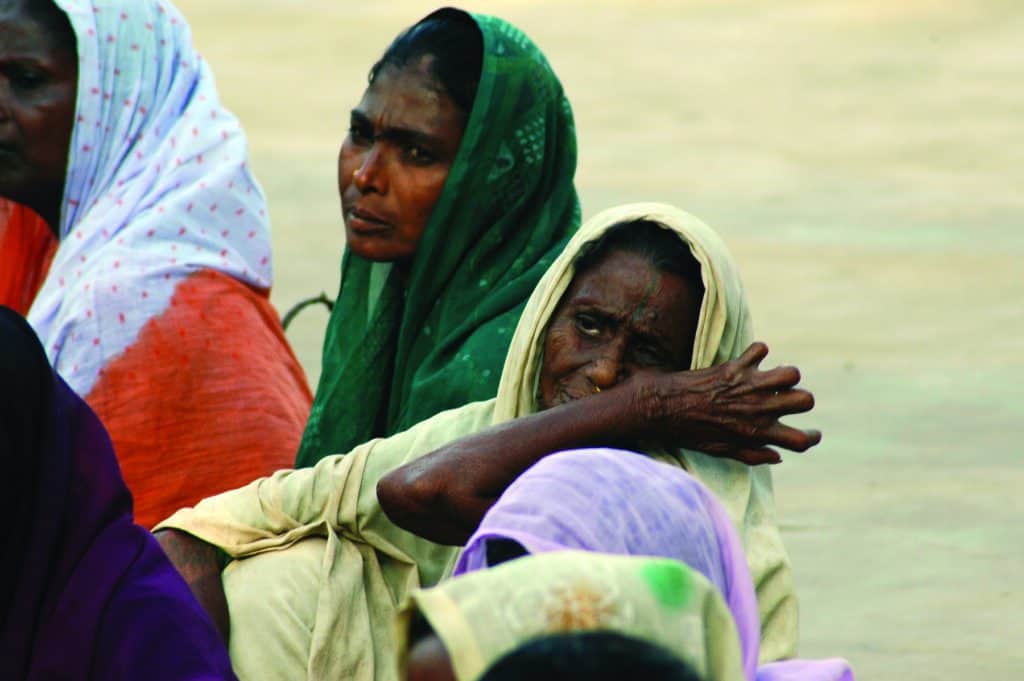
The second is if a person of a higher caste converts to another faith, particularly Christianity, they automatically become a part of the lower caste, called Dalit, which means broken or scattered. They are called and considered to be “untouchables.” Physical contact with one requires a cleansing process, just as with touching a leper. They can work but are limited to jobs like crushing rocks with hammers to make gravel, digging ditches for sewage by hand and repairing broken sewage lines, clearing the streets of garbage, etc. The hovels they call home are typically grass huts or tents made of scrap materials. They live on the sidewalks of the cities and have no bathrooms to relieve themselves or places to bathe. They drink from water ditches and wastewater. They live along railroad tracks and near bus stations, two of their favorite places to beg. When they perish, their bodies often lay on the street, waiting for a cart to pick them up and take them to a place of mass cremation.
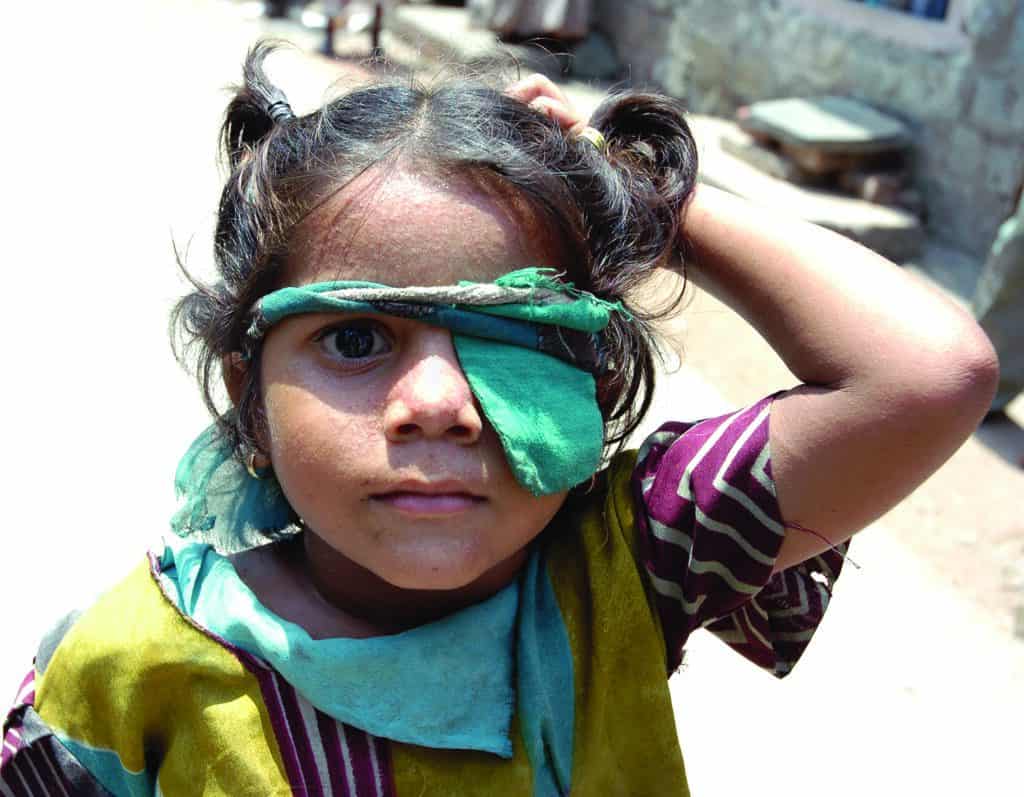
On my first visit to Calcutta in 1992, now called Kolkata, I can recall seeing bodies on the street and observing how those walking past would step over them and carry on their way, not even looking down to notice that was a human they were stepping over. Humanity can become so callous to suffering that even the smallest gesture seems remarkable. Consider Mother Teresa. Her fame came not from feeding or healing the poor but from providing a clean bed for those at the doorway of death, giving them a dignified death on a clean bed rather than the dirty street.
But these are not the children he risks talking about.
How history has affected the current situation:
Alexander the Great, as did the Romans after him, referred to India as “the Indias.” (plural) The Roman historian Strabo, writing from Damascus, a stopping point on the road from the east (Persia and India) to Jerusalem, wrote that among those “wise men” who traveled from the “east” searching for the newborn King of the world, there were seventeen ambassadors (wise men) from “the Indias.”
From pre-history to the British rule of India, it was never one nation but many independent societies, each led by a Rajah (king). In 1947, these rajahs quickly became extinct when the sub-continent was united into one country with a British government style. I have met a Rajah who now follows Christ, living a simple life with no rule or say in rulings. He lives as an average man who moved out of the palace into a small dwelling, now having authority only over his immediate family.
Now to my point:
Recently, we have learned of a different group of children, also abandoned by society, from a sub-caste called Bogaalu, also known as Kalavanthula. But what have they to do with the rajahs?
For thousands of years, during the reign of the rajahs, and most notably in eastern India, a caste of courtesans was trained to provide entertainment and pleasure to the rajahs. But, seventy-six years ago, the age of rajahs ended, and their assets were confiscated, ending their patronage of the courtesans. Some courtesans plied their trade with the new local government leaders and other wealthy men to survive. They had been taught their craft for millennia, passing it down from mother to daughter. In their minds, they had no other option as they knew no other trade, nor did the caste system allow any other trade.
Soon, their status went from one of elevation to one of degradation. Many plied their trade at local temples, becoming “temple prostitutes” and owing their livelihood to the god or goddess they served. Over time, girls and boys as young as six (or even younger) were devoted to the service of the temple priest. They were given food and a place to sleep, but the profits of their trade went to the priest. Once considered too old or worn out to be profitable, usually around eighteen to twenty, the temple sold them to a pimp for his service.
Still, they could bring a profit for him, but as they became even older, their bodies racked by the ravages of sin (usually before the age of thirty), they would be cast out to the streets on their own, serving the poorest, the criminal elements, and those with HIV. (India is number one globally for the number of HIV-infected citizens, having passed South Africa. The spread is primarily due to prostitution at truck stops where out-of-town clients seek their services before moving on to the next stop along the road, eventually spreading across the entire country.)
My wife Nolin and I have met many of these ladies and are particularly interested in helping them find Christ. Some of our preachers have converted hundreds of these women who then voluntarily quit prostitution but have no other skill to ply. We organize them into communities and have churches filled with former temple prostitutes, who now praise the Lord of lords, who has forgiven them, cleansed them from all unrighteousness, and set them free. Their lives are not easy, but Christ makes them “Abundant!”
But what of their children? None know their father; if they did, they would not be welcome or accepted by him. Some of these children were also prostituting for their goddesses before their mothers were saved. Now they, too, follow Christ but have the stigma of being the child of a converted prostitute and perhaps being one themselves. They have willingly forsaken their caste, duties, family, society, and gods and goddesses. Now they follow a new Lord who loves, gives, and forgives.
And this brings me to the point of the story. Our “unnamed director” has located a home where many of these abandoned children live. Consider those worn-out prostitutes who cannot feed themselves and certainly cannot feed their children. So they abandon them, and eventually, they may be found by a pastor or church member. If able, they take in more and more until finally, they need help feeding them.
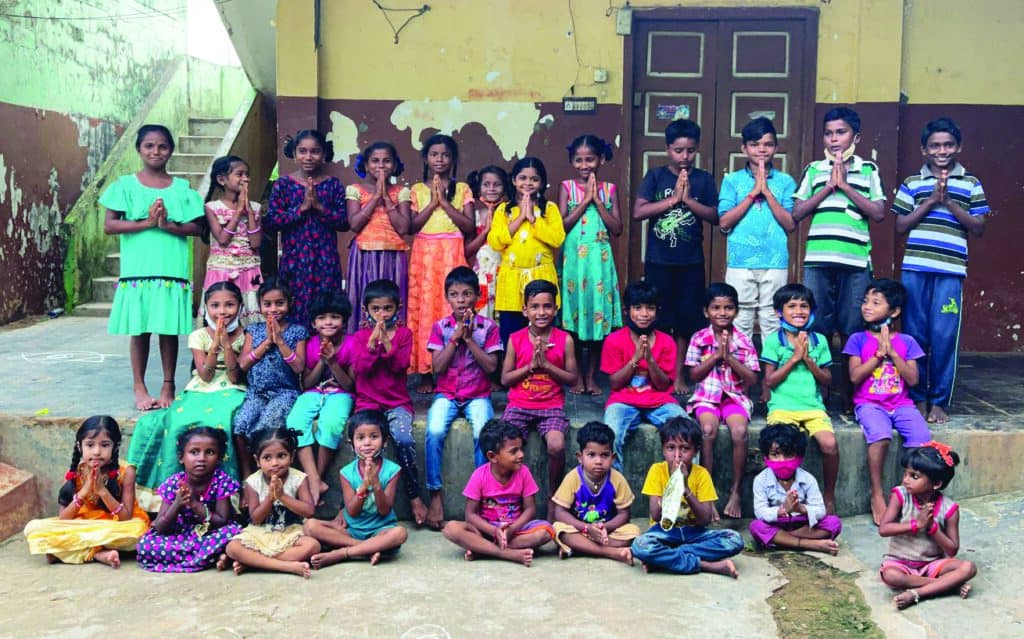
Would it not be our delight to rescue these children? To show them the love of God that so greatly exceeds the abuse of gods and goddesses? Look at the photo and tell me if you see what I see — young kids eager to learn, laugh, grow, and become viable members of their church and society. They have so little hope. They are starting from a hostile place in life, with no earthly status, in a land where status is not just important; it is everything. Therefore, it behooves us to help them and others like them — as many as we can. They were not orphaned by their parents’ death but by their parents’ devotion to a devilish religion, causing them ultimately to give away the most precious thing in their lives – their children.
I am weary of those who say since they cannot help everyone, that there is no need to help anyone. And I have observed that those who say we cannot help them all never help any at all. In the first place, I do not believe that we cannot help them all. On the contrary, if we do all we can, our Lord will raise others to join the struggle. He acknowledged that we will always have the poor but didn’t mention the starving.
Our Savior took the assets of a lad, five pieces of flatbread, and two sardine-like fishes, asked His Father to bless them, and fed 5,000 men plus the women and children. What could He do? What would He do if we gave our comparatively massive assets to Him? Isn’t it time that we took His command seriously to lay up treasures in Heaven rather than on earth? You’re going to leave all you have here. So, what do you have waiting for you there?
Read more articles from our Progress Reports, or view our entire Progress Report Archive.










